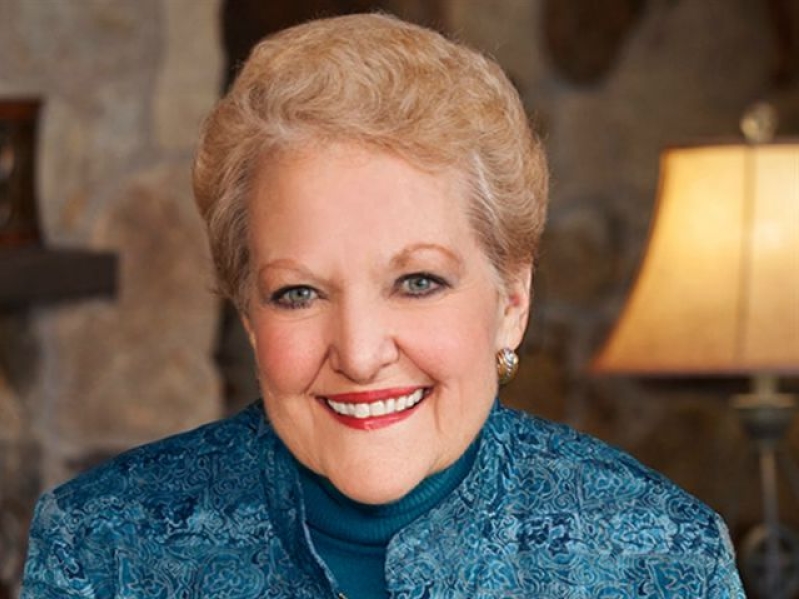
June Hunt is no stranger to conflict resolution.
A world-renowned biblical counselor, Hunt has hosted two award-winning radio programs, "Hope For The Heart" and a live 2-hour call-in counseling program, "Hope In the Night". For over 30 years, she's helped those struggling with emotional, relational, and spiritual problems experience God's love through biblical hope and practical help.
She's also written a number of books on the subject, including Conflict Resolution: Solving Your People Problems, How to Forgive ... When You Don't Feel Like It, Keeping Your Cool...When Your Anger Is Hot!, and How to Deal with Difficult Relationships.
During a recent interview with The Gospel Herald, Hunt shared her thoughts on how Christians can lovingly disagree with one another and how one can identify the "attackers and avoiders" in their life.
Below is an edited transcript of Hunt's interview with The Gospel Herald.
GH: At a time when our nation could not be more divided, what are some ways Christians can lovingly disagree with one another?
JH: People will always disagree. The question is, can we disagree agreeably? Actually, the truth is, there will not be 100% reconciliation; there won't be like-mindedness. We know, because Jesus said, "In this world, you will have trouble, but take heart - I have overcome the world." The key for us, certainly for me - there was a point and time when I humbled my heart and received Jesus as my personal Lord and Savior...The Bible says it's Christ in you, the hope of glory. So, with Him on the inside, when you really receive Him as Lord and Savior, He begins to change our heart. He says, "I'll give you a new heart, and I'll put my spirit in you." We get a changed heart, as in a heart transplant. That helps hugely. We don't need to be acrimonious; we don't need to just attack people. It's the love of Christ that...draws most people to Jesus himself, not just words. Many times, there's a spirit of care.
Jesus said, "I did not come to bring peace, but a sword - a sword of truth." How do we deliver that truth? One thing that we can do is always ask -- and be perceptive -- what is a need in that person's life? That's very simple. What is a need? Ask, "God, could you use me and help me meet that need." It can be very practical.
We need to figure out, where is this person? What are they interested in? If we are wanting any kind of reconciliation, we've got to think and pray for discernment. The Bible tells us Jesus will give us a discerning heart if we pray and ask Him for it. So, that's part of the package when there is division.
GH: Over the years, what are some key lessons you've learned about conflict resolution?
JH: I always start out talking about attackers and avoiders. Now, the attackers are the wolves that are ferocious. They demand authority, power, and demand to have their way, or they will attack you. Then, there are the snakes; the snake in the grass type people. You don't know that they're snakes in the grass; they're more passive aggressive, and they'll talk about you, they're fault finders -- always finding fault. Then, there are the hornets. Hornets amass other hornets; they like to be a swarm and then they'll just complain...and hornets, in a mass, can literally kill a person. They can be very dangerous.
All of these are found in the Bible. But the point is to understand that Jesus said to beware of wolves in sheep's clothing. He called religious leaders "a brood of vipers", those are snakes. So, you see what we are to avoid and not be.
I was an avoider; avoiders are your turtles and your chameleons. The turtle will go in the shell; they don't want to be involved in a conflict, so they hide. The chameleon is a people-pleaser; they're desperate for approval. That's not healthy. Then, there is the weasel. The weasel - and this is me, too - I would use weasel words to weasel out of the truth; constantly...twisting the truth. I never thought of myself as lying, or a liar, but I lied. You think you have no choice; it's survival. And, I didn't, by virtue of how I was conditioned. But now, as an adult, I'm still doing this with other relationships...things that kept conflict going.
What helped me was, I had to grow up. The Bible says in 1 Corinthians 13:11, "When I was a child, I talked like a child, I thought like a child, I reasoned like a child. When I became a man, I put the ways of childhood behind me."
Now that I'm an adult, I put childish ways behind me. I had to go to war over telling the truth; that meant, if you were angry with me - and I hated anger, because that's what triggered my dad - if I'm triggered, I've got to say, "No, that was then, this is now." Now, meaning, I've got to accept that if [someone] attacks me, he/she has a problem, I'm not going to let their problem be my problem. If he/she is exploding, I'm not going to let their problem be my problem. There are going to be people who are way out of bounds; they're out of control. That doesn't mean we change and then twist the truth. That helped me deal with the truth, because it's truth that sets us free. We need to find ways that are biblically based to become the person God created us to be.






